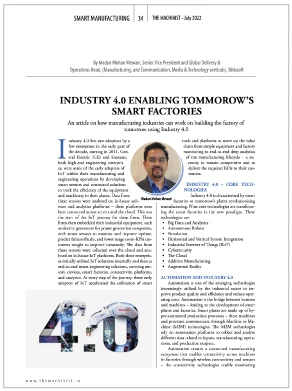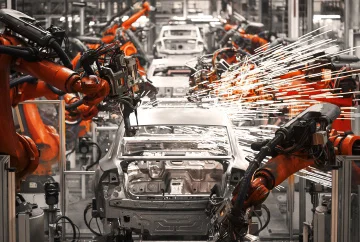Industry 4.0 first saw adoption by a few enterprises in the early part of the decade, starting in 2011. General Electric (GE) and Siemens, both high-end engineering enterprises, were some of the early adopters of IoT within their manufacturing and engineering operations by developing smart sensors and connected solutions to track the efficiency of the equipment and machinery in their plants. Data from these sensors were analysed on in-house software and analytics platforms – these platforms were later connected across servers and the cloud.
These firms then embedded their industrial equipment, such as electric generators for power generation companies, with smart sensors to monitor and improve uptime, predict failures/faults, and lower usage costs–KPIs customers sought to improve constantly. The data from these sensors were collected over the cloud and analysed on in-house IoT platforms.








